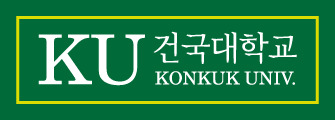학과소개
- The Objectives of Educating Public Administration
- The Department of Public Administration at Konkuk university offers a program of coursework leading to a highly expertise level in the arena of public affaires. But Public Administration is a rich and challenging multi-disciplinary field drawing from sociology, anthropology, philosophy, psychology, economics, and urban and organizational studies. Therefore, it provides students with a grounding in major philosophical and social science thinking about the nature of organizations, helping students to build the intellectual and practical tools they will need to become effective organizational leaders in the public and non-profit sectors. Public Administration as a specialty of social science field it is designed to increase the personal and professional effectiveness of people working in public, voluntary, and private organizations. The purpose of the program is to prepare individuals for leadership positions in various organizations with a sense of commitment to social purpose, the public interest, and effective public problem-solving.
- Introduction to Public Administration
- Set within the context of contemporary political, social, economic, and administrative realities, this introductory course in public administration explores responsive, equitable, effective, efficient, and accountable governance processes, public policies, and institutional-base programs. It examines, from a multidisciplinary perspective, those essential competencies, values, and issues important to public service organizations and the importance of public policy at the local, state, national and international levels. Using a diverse set of learning experiences to present a general introduction to the principle components of public administration, completion of this course will provide the student with a general understand of the complex environment within which governance occurs as well as the duties, responsibilities, challenges and problems of public service professionals.
- Environment and Citizen's Movement
- This is a course on contemporary environmental politics in general, but we will also examine the history of the environmental movement and environmental legislation and some international and global aspects of environmental politics. Much of this section will focus on the following questions: What are the causes of the environmental crisis? Does it make sense to talk about the (singular) environmental movement, or are there distinct environmental movements (plural)? How are ‘environment’ and ‘nature’ defined, and how does that shape the environmental movement? Does environmental policy deal with all major environmental issues? If not, what is missing? How successful has environmental policy been? How could it be more successful? Whose interests does environmental policy serve? It also analyzes specific environmental issues, problems and incidents. These will range from the local to the global, with a focus on national-level issues.
- Basics Of Local Government Management
- The Local Government Management Course is designed to provide officials and practitioners in the field of Local Government with a common ground in the nature, policies, legislation, intergovernmental relations, workings and objectives of the Public Service in Korea within the context of Developmental Local Government. An understanding of the role that local governments play in the New Governance system. This course is also devoted to the study of local politics with special emphasis on local governments in the Republic of Korea. It covers the origins and development of local government, its constitutional and statutory foundations, and the political and social contexts of contemporary counties and municipalities. The course also examines specific issues found in other advanced countries, such as structure, autonomy, finances, tax base, and relations with the state, tribes, and etc.. This course seeks to prepare future managers (and mayors!) for working in a highly politicized and publicly-scrutinized environment that has direct and significant impacts on the well-being of our communities.
- Understanding Korean Public Administration
- The goal of this course is to introduce students to the status quo of Korean public administration as a field of practice and as an academic discipline. It explores ethical fair, effective, efficient, and accountable governance processes, public policies, and institutional-base programs in Korea. It examines, from a multidisciplinary perspective, those essential competencies, values, and issues important to public service organizations and the importance of public policy at the local, state, national and international levels. In this course students will survey the organization, management, and growing influence of public bureaucracies at either central or local levels of government. It covers values and ethics in public service, policy analysis and evaluation, organization theory, decision making, public personnel systems, collective bargaining, leadership, communication, theories of budgeting, ecology of public administration, and productivity in the public sector. Taking this course will insure that every student engages the skills, protocols, and communication methods.
